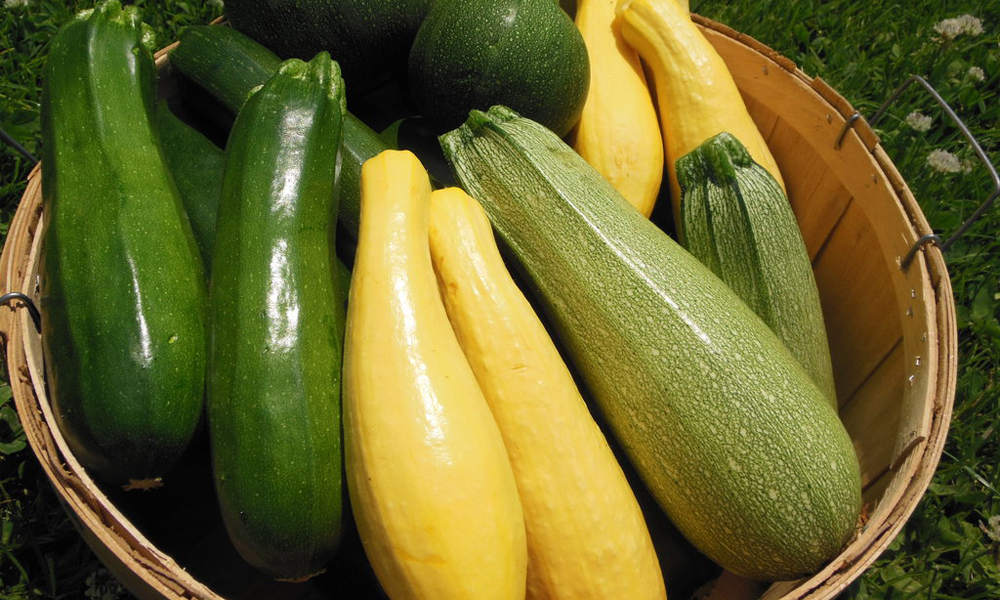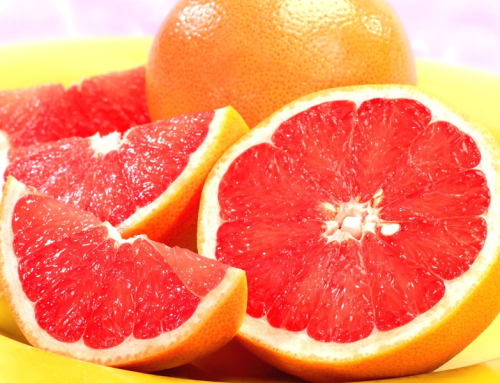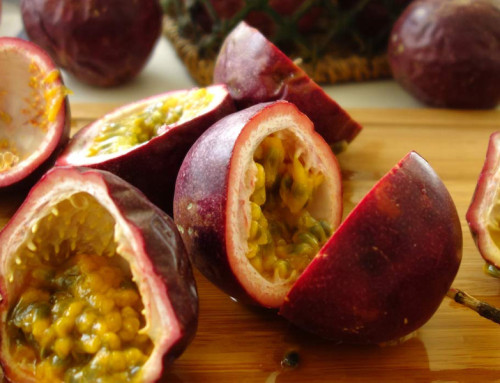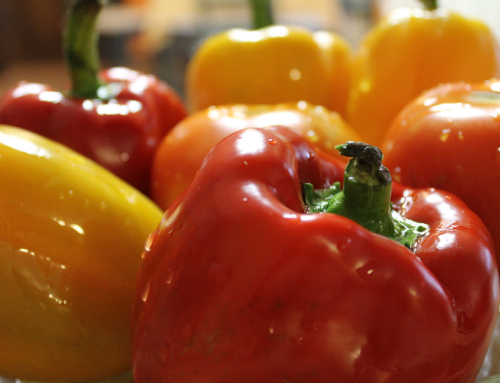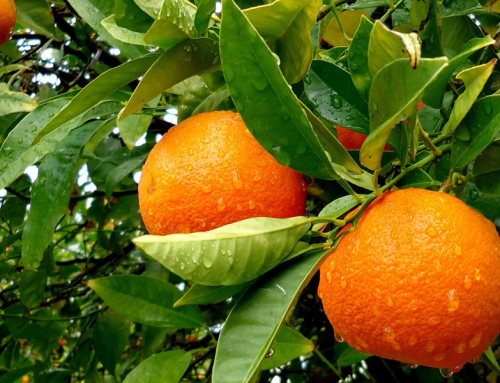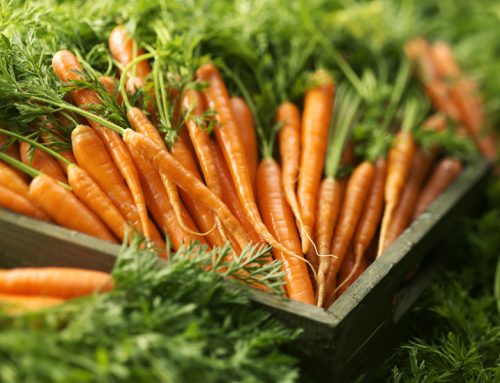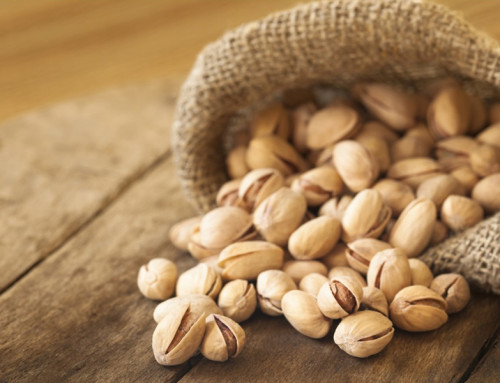- 1 medium (approx. 196 g) – 33 calories
- 1 cup, sliced, boiled (approx. 180 g) – 27 calories
Zucchinis may be the most popular of all of the summer squash varieties that are used for food in Europe and North America. The zucchini is classified as a member of the species, C. pepo, genus Cucurbita, of the family Cucurbitacea. This sqaush has its ancestry in the Central American regions, though what is commonly known as the zucchini was developed in Italy much later.
Basic Information
Unlike most winter squash varieties that are vine-like in growth, the zucchini plant has a more bush-like appearance. This vegetable is easily grown in temperate climates, and is often a favorite with home gardeners for its proliferation of fruits. Zucchinis can grow quite large, up to 3 feet in length, but the younger fruits are generally selected for tenderness and sweeter flavor. While the zucchini is regularly treated like a vegetable in its culinary uses, it is botanically considered to be a fruit. Although most of the vegetables that are referred to as zucchini are typically green there are other varieties, most commonly the golden zucchini, that is a nice yellow in color.
Nutritional Components of Zucchini
Zucchinis have only 17 calories per 100 grams of this vegetable, making it a great choice for those who are trying to lose weight. This fruit also contains fiber and has no cholesterol. Zucchini also contains vitamins and minerals, most notably folate, several B vitamins, Vitamin C, potassium, manganese, phosphorous, and iron. Antioxidant and health benefits are also derived from special carotenoids that are found in this delicate vegetable.
Health Benefits
- Eye Health
Zucchini contains phytonutrients, such as lutein and zeaxanthin, that help to protect your eyes from damage by filtering the light that enters the lens. These carotenoids not only promote overall health to the delicate eye tissues, they can also offer some protection for the development of age-related macular degeneration. - Immune System
This creamy vegetable contains many vitamins and minerals that not only have an antioxidant effect to protect against cell damage, but these nutrients are necessary for proper cell regeneration and healing of damaged tissue. - Strong Bones
The minerals found in zucchini are important in maintaining strong and healthy bone tissue and help to protect against bone loss. - Cardiovascular Health
The potassium found in zucchini helps to regulate electrolytes in the body and may play a role in keeping a healthy blood pressure and heart rate. The nutrients in zucchini may also reduce your risk of stroke and heart disease. - Weight Loss
There are many reasons to add zucchini to your weight loss and exercise program. Low in calories, this long, cylindrical fruit also contains fiber to help you to feel full for longer, thus eating less. The nutrients in this vegetable also help with muscle movement and growth, which is extremely beneficial if you exercise on a regular basis. Additionally, adding zucchini to your diet may help to aid your metabolism to help your body to burn calories more efficiently.
Culinary Uses for Zucchinis
These mild-tasting tubular vegetables are good to eat by themselves, either cooked or raw. You can grill, saute, microwave, or prepare zucchini any way you want, with a little butter or oil and seasonings, or by itself. However, there are a variety of ways to use zucchini in your diet to enjoy the nutritional benefits. You should wash and trim the ends before using, though it is not necessary to peel the fruits.
- Baking: You can add shredded zucchini to breads, muffins, cakes, or even meatloaf before baking for an extra level of moistness. The mild flavor of this vegetable makes it a great addition to your baking that will not alter the flavor of the food.
- Salads: Raw zucchini is a healthy addition to any salad. Add this shredded vegetable to your lettuce and fruit salads for an extra level of creaminess and texture.
- Add-ins: You can combine zucchini with other vegetables as a side dish, or you can use this delicate vegetable in soups or stews. Add near the end of cooking to avoid turning the pieces into mush.
- Flowers: The zucchini plant produces edible flowers that are a great addition to salads, delectable when fried, or are commonly stuffed.
How to Choose and Store Zucchini
Zucchini is often available all year long, but is most commonly seen in the late spring and summer when local harvests are in their prime. This cylindrical vegetable is typically sold fresh in the produce section. Choose fruits with clear, smooth skin that is somewhat firm to the touch. Select those that feel heavy for their size. Select medium-sized zucchinis for the best flavor and texture. Those that are very large and more mature may be tough and fibrous.
Zucchini are very delicate and will typically keep well in a sealed plastic bag in the high humidity drawer of the refrigerator for two to three days. Freezing is not recommended because the fruit becomes very soft upon thawing. However, if you are using this summer squash in baking, shredded zucchini can keep well in the freezer for a few months in a sealed container.
Individual Concerns
For some individuals, adding too much zucchini to the diet may not be a good choice. This is because the vegetable contains oxalates. While oxalates are naturally-occurring, those individuals who have problems with their gallbladder or kidneys may wish to limit the amount of zucchini eaten to avoid potential problems.

